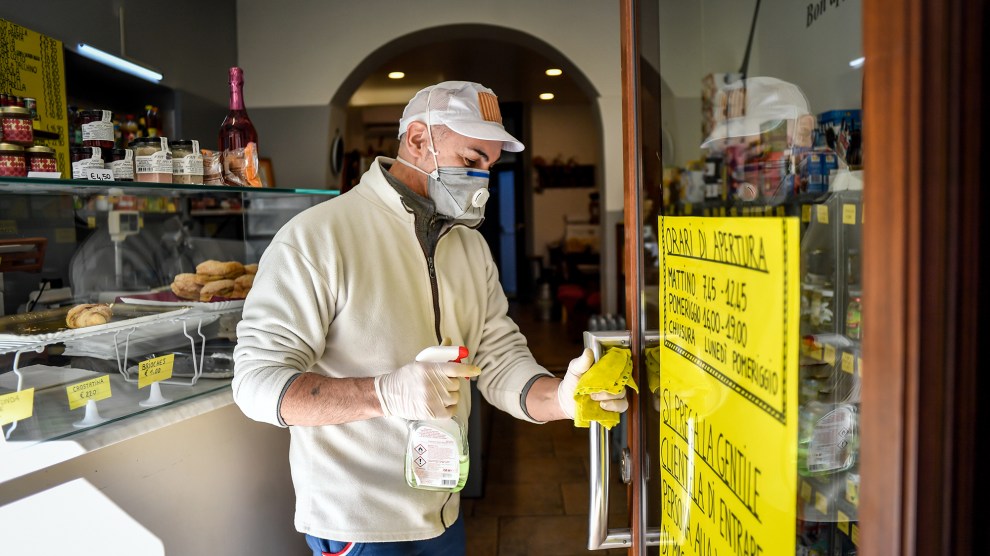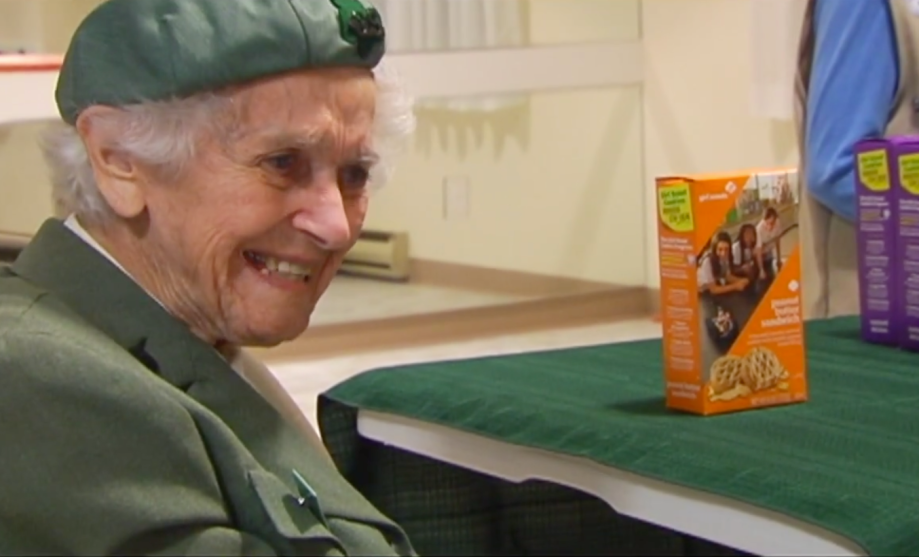
Claudio Furlan/LaPresse/ZUMA
Disruptions from the coronavirus are already widespread and impacting your everyday lives in ways both big and small. That’s what you told the Mother Jones Podcast team when we asked for your stories to feature on this week’s show. Listeners spanning ages, cities, and professions, relayed fears about paying rent and relying on credit cards, taking big hits to their businesses, and looking after the elderly. One listener described what it was like living in total lockdown in Italy; another, the fear of never seeing friends again as her college campus debates longer-term closures. Listen to the segment on the Mother Jones Podcast, and read an edited sampling of their stories below:
Marissa called from Milan, Italy, where a bad outbreak has the city on lockdown:
“We are in total lockdown because of the coronavirus, which means we basically all need to stay home. That requires figuring out creative ways to do things at home. In fact I’m posting on Instagram to make people laugh, trying to find nice ways to get through this. I can go out. I can walk my dogs. I can do the minimum required to survive at home. However, it has completely changed our lives… working from home, on the computer, conference calls, webinars.”
A pottery artisan, Doug from upstate New York, says he’s about to lose a ton of business:
“The coronavirus is already affecting me and my colleagues on a catastrophic level. We have our annual conference once a year where five to six to seven thousand ceramicists from around the country congregate together. We hear important talks on the field. And, from my standpoint, we sell pottery. And that conference is right now in threat of being canceled, which means a loss of millions of dollars in revenue.”
An Uber driver from Austin, Texas, who wished to remain anonymous, spoke about working in the gig economy when the gigs slow down:
“We have no work. No one is coming out. We have no income now. No one is taking care of us because of the gig economy. I’ll put it to you this way: if this keeps up, I will be filing bankruptcy because I will not be able to pay any of my bills. I don’t know how I’m going to pay rent, utilities, groceries. This is affecting my life greatly.”
Nancy from California hires hourly employees, but her events business is taking a serious hit:
“I work in the events industry. Over the past seven days, my company has seen several million dollars in business canceled for March and going into April. I have seen 85 percent of my commissions for the next three months completely disappear. The biggest concern that I have are the people who work as hourly employees. Unless they have a job to work, they have no paycheck. And a lot of the people that work for my company will not be getting a paycheck in the foreseeable future because the business is canceling to that extent. So I’m extremely concerned about them heading into a financial crisis.”
Gabrielle is a 21-year-old college student whose classes have moved online as the result of a community petition:
“I’m a student at Vanderbilt University. My university just came back from spring break and at least nine students were in contact with someone who later tested positive for the coronavirus. People basically freaked out. A petition gathered at least 1,500 signatures for Vanderbilt to switch to online classes. They canceled classes for this whole week, and then they’re going online for the next two weeks. We don’t know if classes will resume in-person on March 30th. This may be the last time I see some of my friends who are seniors, which really sucks, I’m not gonna lie.”
Paul had a disturbingly easy time getting through customs on his way home from China:
“I’m an American citizen, but I’ve been teaching in China about 600 miles away from the epicenter. I came back to the United States to teach briefly in San Diego actually around January 21st. And the person who was a customs only said, ‘did you have a good time in China?’ And I said, ‘Yes.’ He said, ‘Welcome back home.’ And that was it! And that’s pretty frightening. So, who knows if that’s still going on at this juncture.”
Courtney from San Francisco is a stay-at-home mom who is just trying to keep her two young children healthy:
“My family is self-isolating because my toddler has a perpetual runny nose, and is therefore not allowed to go to school. My husband’s job has required that all employees work from home for at least a month. And I am home anyway with my newborn baby. So here we are, in our two-bedroom house, trying to figure out how to get everybody else sick, not get sick from everybody else, and not kill each other at the same time.”
Tammy from Stone Mountain, Georgia called in to describe what it’s like for her to have a 90-year-old father living in a facility that has been locked down:
“I’m 62. My partner is 71. So we’re both over 60 and in that risk category. We are stocking up on supplies. We are curtailing social outings. We are washing our hands even more than we did before. But the biggest thing for me but the biggest thing for me is that my 90-year-old father is in a facility for memory care, and I’m terrifically worried about him. Today, the company that runs these homes throughout the United States quarantined all of them. So they are all locked down. As a public health practitioner, I am in fact very happy about it, but it means that I can talk to my dad and that’s always emotionally a little heart-wrenching.”















